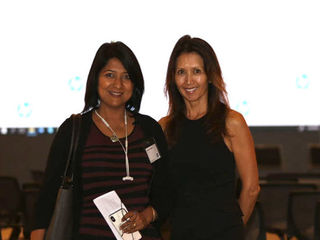
Castor CEO Derk Arts on VatorNews Podcast
Castor conducting 7,000 trials across multiple disease stats, including COVID, mental health
Bambi Francisco Roizen interviews Castor CEO Derk. Castor is on a mission to make every clinical trial faster and patient-focused. The company recently raised $45 million in July, following a $12 million round raised in August 2020.
-
Castor is democratizing clinical trials by making it easier for pharma companies, medical device companies, research companies inside hospitals and academia to conduct clinical trials faster and with more precision.
-
Today their clients are mostly medical device companies; digital therapeutic companies, like Click Therapeutics, and academic or research institutions like the World Health Organization
-
Digital therapeutic trials have focused on mental health, diabetes and cardiology
-
Castor, which has to date conducted 7,000 treatment and vaccine trials across multiple disease states, including many around COVID, makes trials more efficient by enabling customers to quickly recruit diverse populations, run trials compliant with the FDA process, onboard patients, conduct hybrid trials (in-person or at-home), conduct adaptive trials where sponsor companies could change treatments easily.
-
For the WHO, Castor conducted randomized therapeutic trials (such as Remdesivr) across 15,000 patients with COVID, 3,000 principal investigators (physicians) across 30 countries. The trials with WHO are now expanding to 60 countries. Castor will be testing three new treatments.
-
It’s likely the major drug companies, Pfizer and J&J used some elements of decentralization to get their vaccine out within a year.
-
It’s probably too early for the emergence of a landmark drug that went through a decentralized clinical trial process.
-
The measurements of success of the platform include: 1) how quickly a trial can get started (being able to launch a trial in a few weeks 2) Data quality 3) user satisfaction 4) empowering hybrid models - effectively enabling people to do trials at home (70% of population of those in trials have to drive 2 hours to participate)
-
What does it mean to be user-centric besides enabling people to participate at home? Giving them control of their data to make it reusable for other trials or just giving them control by giving them access to the trial data and wearable data.
-
Trial sponsors own the data so it’s hard for Castor to leverage the data created by one trial or target the participants in one trial to be used for another trial. In some cases, large corporations running multiple trials across different business units might find it useful to share that data in real time. There’s also metadata that is learned from the trials, such as understanding how long it takes to enroll users. But ultimately, the data is owned by sponsors. In the future, if users owned their data, they can opt into new trials more easily.
-
The business model is changing into a SaaS model and away from project based. Most modern vendors are SaaS and API solutions. These payment plans are more efficient because companies can run multiple projects through a paid recurring payment plan, gain economies of scale by doing less onboarding and reducing contracting costs.
-
The price per participant should be lower theoretically (streamlining should lower costs). But for now, everything new is expensive. But once in the future where a subscription allows a company to continuously recruit from the same population, there can be some savings. The average clinical trial process can be 9 yrs long and cost $1.3 billion.
Thanks to our sponsors: Advsr; a boutique M&A advisory firm. They wrote the book on startup M&A called "Magic Box Paradigm: A framework for startup acquisitions." Go to Amazon.com to get your copy. Also thanks to Stratpoint, an outsourced engineering firm and Scrubbed, an online bookkeeping firm. If you need affordable and quality engineering and bookkeeping, check them out. We highly recommend them!

Kristin Karaoglu
Woman of many skills: Database System Engineer; SplashX event producer; Author of Startup Teams
All author postsRelated News


